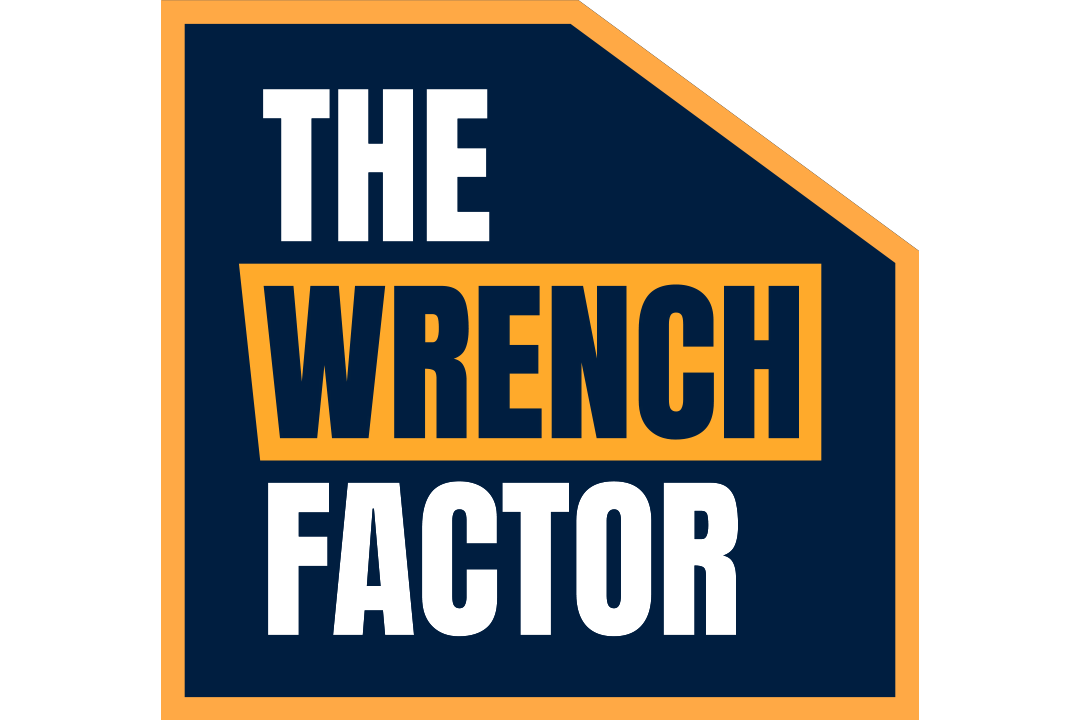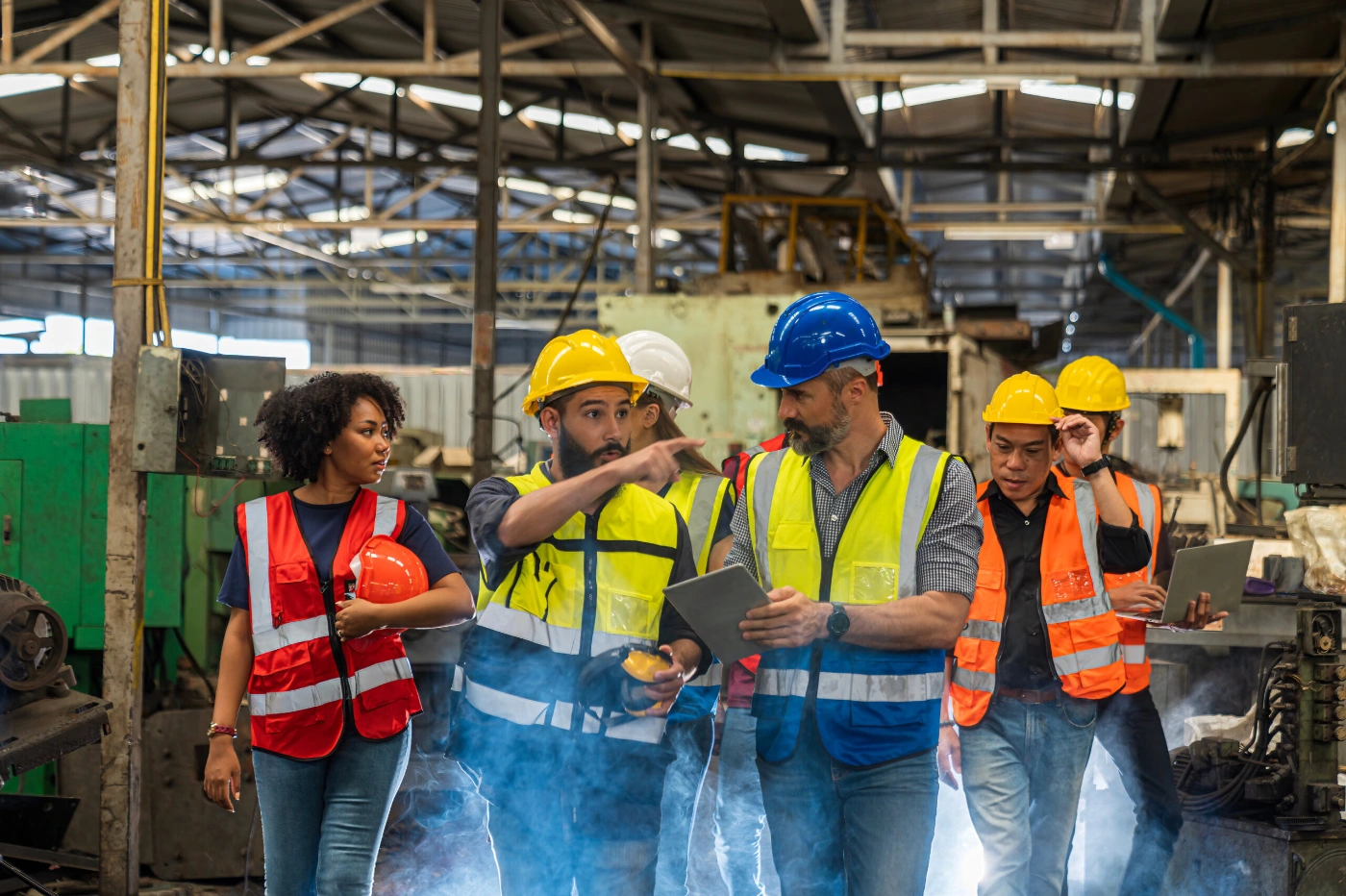
Facility management is a full-fledged discipline that involves overseeing many moving (and static) parts, including facilities, equipment, people, and processes.
Managing the facility and the people who work in the facility is something that every business needs, whether it’s a manufacturing warehouse, a corporate office, a school, or even outdoor areas like parks. All buildings require some level of maintenance–companies who depend on their facilities to operate their core business need someone who can ensure their facilities don’t slow operations.
Facilities Manager: Job Description and Work Requirements
So what does a facility manager do? What is the job description, what are the work requirements, and what qualifications do you need to become a facility manager? Whether you’re interested in learning more about what it takes to be a facility manager or already are a curious facilities manager wondering what the job entails, this post is for you.
Let’s start with the basics.
Facility management is a broad discipline that covers everything related to the facility, people, comfort, processes, and more. Facilities represent a business’s assets and expenses. The International Organization for Standardization (ISO) defines facility management as:
Facility management is a broad discipline that covers everything related to the facility, people, comfort, processes, and more. Facilities represent a business’s assets and expenses. The International Organization for Standardization (ISO) defines facility management as:
“Organizational function which integrates people, place and process within the built environment with the purpose of improving the quality of life of people and the productivity of the core business.”
What Does a Facilities Manager Do?
A facility manager is someone who practices facility management (obviously). She is responsible for managing the facility, the people, processes, and everything else that’s either directly or indirectly related to the facility. A great facility manager goes beyond primary maintenance responsibilities (such as cleaning, ventilation, and security). Her work is directly responsible for providing a safe and productive work environment for their team and often creates the first impression your employees and customers have when they visit your company.
Facility Managers ensure that the property and environment are always in working condition and that employees have a safe and functioning workplace. Those responsibilities generally go well beyond building maintenance and repair.
Statistics show that by 2025, 75% of the workforce will be millennials who are technology natives and expect to have their workplace technologically advanced and equipped.
It’s the responsibility of facility managers to ensure that their workplace meets the needs and requirements of these employees. The facility manager should take charge of transforming the building and environment accordingly. It goes beyond traditional maintenance and repair.
Facility managers cover the following areas in an organization:
- Space and infrastructure – Space and infrastructure include workplace maintenance, project management, reactive maintenance, furnishings, building infrastructure, safety inspections, and more.
- People and organization – People and organization include custodial management, hospitality, communication and updates on work requests, and more.

What Type of Companies Need a Facilities Manager?
Any company with a physical presence needs to have someone overseeing operations. Far too many businesses don’t give due attention to facilities management, which results in increased downtime and unhappy employees.
Ideally, any company with buildings, assets, and equipment has staff dedicated to keeping everything in safe, working condition.
Here are a few major reasons why businesses need (and should hire) a facilities manager:
- Improvement in facilities makes the environment better, which leads to higher productivity and employee engagement.
- Proper management and maintenance of facilities reduce cost and risk/liability.
- A facility manager can maximize the value of each asset.
- The facilities manager has the experience and skills to oversee the organization’s facilities.
- Facilities management improves the workplace, which improves employee retention and productivity.
Facilities Manager Job Titles
- Workplace Manager
- Head of Facilities
- Facilities and Support Services Manager
- Facilities Strategist
- Facilities Management Supervisor
- Facilities Administrator
- Area Facilities Manager
- Facility Manager
- Facilities Technical Manager
- Facilities System Specialist
- Facilities Specialist
- Facilities Coordinator
- Facilities Maintenance Manager
Facilities Manager Job Description
As a facility manager, your job will be challenging. You should provide every single employee in a workplace with a personalized on-brand experience.
What do we mean by ‘personalized on-brand experience?’ In a shared workplace, it’s hard to provide everyone with a customized environment of their choice. A mundane example of this might be related to an internal power struggle over what temperature the office should be. If most folks agree that 69F is comfortable, but one person is frequently freezing, you might accommodate them by providing a low-powered space heater at their desk. Another example might be ensuring that the company’s brand and color scheme are prevalent throughout the facility to enhance workplace morale and atmosphere.
Primary Tasks
The primary task of a facility manager is to transform facilities into recruiting and retention assets. If a high-quality job applicant walks into a dump of an office, they will definitively be less excited about the opportunity. Conversely, if your top performers aren’t excited to show up to the office, their incentive to stay will decrease over time.
The specific tasks a facility manager will do depend on the company, its strategy, culture, and objectives.
A facility manager gets to work both at the strategic level as well as the operational level. They are involved in planning, safety, operations, and day-to-day activities of the workforce. For instance, if your company is installing new workplace IoT devices to improve productivity, the facility manager will be to be an active part of the decision-making and strategy development process.
The facilities manager will recommend the right devices, where to install them, how to facilitate employees, and more. You and your decisions as a facilities manager play a central role in the whole process.
Beyond those responsibilities, facility managers have to perform tasks that may or may not be a part of their job description.
Overview of Common Tasks
Here is an overview of the most common tasks and areas of work that a facilities manager has to perform:
- Development of a facility plan and strategy
- Find and fix problems related to facilities, employees, and processes
- A clear understanding of local laws related to facilities, buildings, assets, safety, employee rights, and more
- Updating the facility with the latest equipment and replacing the old ones as and when needed
- Improving the environment and facilities as a whole
- Reducing the operation cost of the assets
- Infrastructure maintenance, testing, and repair on a timely basis
- Making the environment healthy and safe in accordance with the local laws
- Space allocation and workplace management
- Project management and support services
Facility Manager Job Responsibilities
The actual facilities management responsibilities might be different from the general tasks above. The facilities manager’s job responsibility depends on the requirements of the company you’re working with.
Let’s take an example.
Worley posted a job post for a facilities manager on Indeed. The job description for the post includes a long list of managerial responsibilities. The manager needs to oversee employees and contractors, manage the renovation, monitoring, and maintenance of the assets, manage the workplace, and others.
Sandor Development posted a vacancy on Glassdoor for a facilities manager. Their job description isn’t as lengthy as Worley’s, and they don’t have a long list of responsibilities either. The responsibilities of the facilities manager in their post include meeting property objectives, visiting properties, overseeing projects, maintaining properties, etc.
The responsibilities in these two job posts are different, and this is what exactly you should expect. No two businesses are alike, and neither are their facilities. You have to tweak your management style based on the recruiter’s needs. If they want you to manage properties, you should have the right skills (or at least learning capability) to do a great job.
Here is an overview of the basic facility management responsibilities and duties:
- Management, maintenance, repair, and safety of the facilities
- Planning, coordination, and strategy development for ensuring the long-term improvement of the facilities
- Managing people, vendors, suppliers, and guests in the facilities
- Attending meetings and sharing constructive input
- Following safety, health, and environmental laws and regulations related to facilities and workforce
- Managing insurance and contracts
- Facilities strategy implementation, reporting, and tweaking

Facilities Manager Education Requirements
The minimum education required for a facility manager is a bachelor’s degree. This isn’t, however, a standard. You can get a job without a bachelor’s degree. The data maintained by Zippia shows that 37.3% of facilities managers have a degree in business and 7.8% in management. 37.7% of managers have a bachelor’s degree, and 14.7% have a master’s degree.
While it’s not a hard requirement, it certainly helps to have either a bachelor’s or master’s degree in business or management to increase your employment opportunities at top companies. Certificates, licenses, and other professional courses do impact your career, so don’t ignore them.
Facilities Manager Experience and Skills Requirements
It’s highly unlikely a company will hire you as a facilities manager without any experience. Small businesses with low capital often go for inexperienced management staff, so there are slim chances. A quick overview of the recent facilities management job posts on Indeed reveals that almost all companies need experienced candidates.
Having relevant experience of a minimum of a year will make you eligible for the majority of the open positions. If you don’t have proven experience in facilities management, you should look for low-level management positions in facilities management to get some experience.
The right skills, coupled with relevant experience, will make you a perfect candidate for any facility management post. As a facility manager, you need to have the right skill set.
Here is an overview of skills that will enhance any facilities manager’s performance on any given day:
- Management and leadership
- Analytics skills
- Project management
- Communication and interpersonal skills
- IT skills
- Problem-solving and decision-making
- People management
- Innovation and creativity
- Quality and risk management
There are several formal and informal training programs that you can opt for to enhance your skills and competencies.

Facilities Manager Certifications
Nothing beats professional certifications when it comes to facility management. A powerful certification from a reliable organization will make your resume stand out from the crowd. A lot of companies prefer professional certification over experience and qualification. So if you don’t have relevant experience, it is strongly recommended to get a facilities manager certification, and you might get preference over experienced candidates.
Here is a list of the best facilities management certifications that you can choose from:
- Certified Facility Manager (CFM) by IFMA is an internationally recognized course that is focused on enhancing the competencies of facilities managers. It is an ongoing certification that needs to be renewed.
- Facility Management Professional (FMP) by IFMA is a facility management certification that covers all the aspects and areas of facility management that companies require. It is aimed at increasing the knowledge of FM professionals.
- Certificate in Facility Management by Professional & Continuing Education is an 8-month professional facilities management course that’s perfect for inexperienced candidates as it lets you complete a real-world project.
Facilities Management Jobs
If you have the education, qualification, and right skills, getting a facilities manager job won’t be a tough task. Why?
Because it is a growing area with lots of open vacancies. More than 60K jobs were posted on Indeed in the last 15 days for the facilities manager only.
Just over 1300 facilities manager jobs were posted on LinkedIn in the past 24 hours in the US only. More than 10K jobs are posted per week.
Glassdoor is no different. More than 3600 jobs were posted in the past 24 hours in the US, and more than 19K jobs were posted in the last two weeks.
There is no shortage of facilities manager jobs out there. Companies are looking for professionals with the right skills, experience, and qualifications. Prepare your resume and start applying for the relevant posts.

Facilities Manager Salary
The salary of a facility manager depends on several factors, including experience, qualification, skills, and certification. According to Glassdoor, the current average salary of a facilities manager is $78,010 per year, which can go as high as $126K a year.
Prepare Your Résumé
Working as a facility manager is a great learning experience, especially when you use tools like MaintainX. Using and mastering an advanced tool like MaintainX will give you a boost in your career. Not only will it help you with your job and will make your work easier, but you can mention it as your expertise since not too many facility managers use advanced software like MaintainX.
In order to get started, you should scroll through different facilities manager job descriptions across leading job portals. Carefully select the right companies and do your homework. Try learning a bit about the company you’re interested in joining.
Create a detailed and professional résumé, add all the relevant details, and apply to the job posts that you’re most excited about. Meantime, work on developing your skills by registering for a facilities management certification program. Learn more about MaintainX and see how it can help you as a facility manager.
FAQs

Caroline Eisner is a writer and editor with experience across the profit and nonprofit sectors, government, education, and financial organizations. She has held leadership positions in K16 institutions and has led large-scale digital projects, interactive websites, and a business writing consultancy.




.png)
.jpeg)












